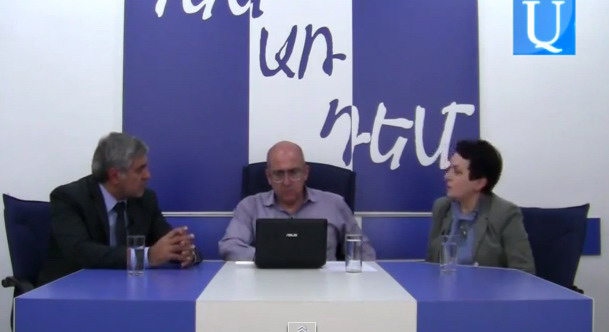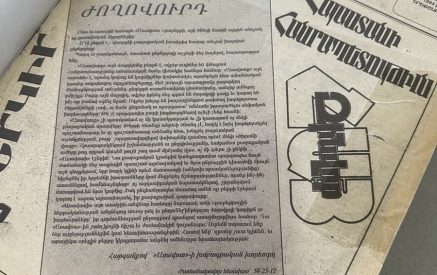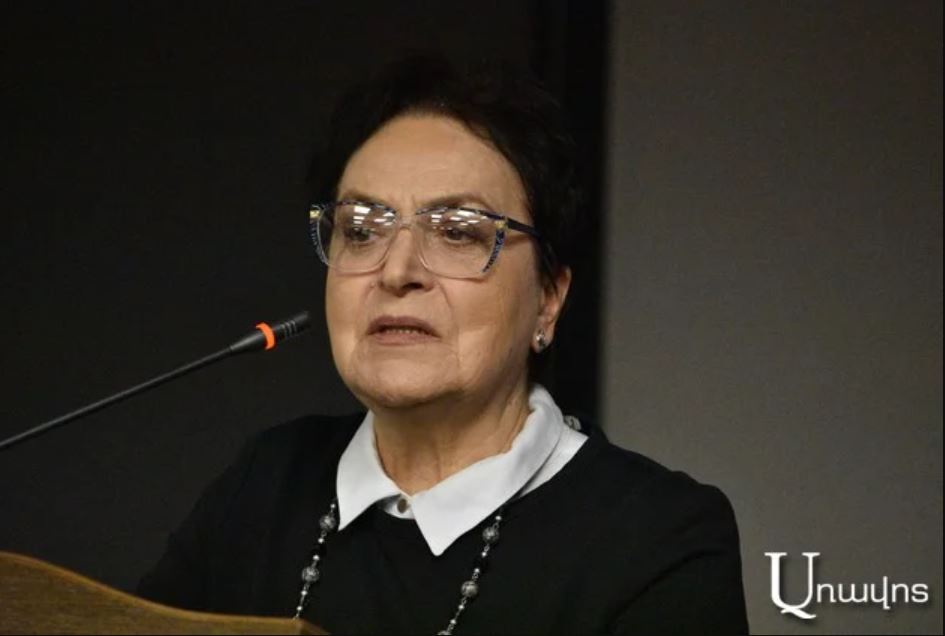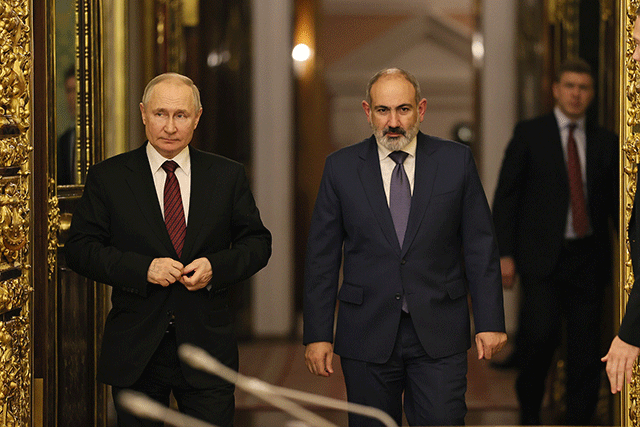The topic of “Face to face” talk show of online Aravot is discussed between the Executive Director of “Against Legal Arbitrariness” NGO, Larisa Alaverdyan, and international expert Hovhannes Igityan.
Aram Abrahamyan – Are James Warlick’s, and later co-chairs’ statements due to the 20th anniversary of the ceasefire or the diplomatic efforts are intensifying, and solutions are suggested?
Larisa Alaverdyan – I think this is also a little bit associated with overall commotion which we see in the matters that refer to the right to self-determination, to what extent the referendum held in Ukraine are legal or illegal. I was very surprised at Angela Merkel’s and Francois Hollande’s statements that these referendums are illegal. It is a right to self-determination, human rights are enshrined in all international documents, and we know that human rights, as opposed to the law, is primary, and it would be surprising if we have said otherwise, check the right by the law.
Hovhannes Igityan – I agree, first, let’s pay attention to Warlick’s the very first sentence, when he said that he does not speak as the U.S. co-chairman of the OSCE Minsk Group, but presents the statement of official U.S. government. I assume that if a country has an opinion, then it will not wait for the 20th anniversary or the 30th anniversary, it immediately declares it. Secondly, why now? I do not think that this view was formed assuming on May 9, at night. May be it has been formed this or last year. Thirdly, of course, we should look at the events that are currently underway in the region, both in Russia and in the world. Why America decided now that it should be told, why at least one of the co-chairs decided that the public or the states should be involved in these discussions.
Read also
A. A. – Was there something new in Warlik’s speech at the “Carnegie” fund, or it was about what is spoken over 20 years?
L. A. – These are the Madrid principles, perhaps, edited in some way, I would say not a good editing. In particular, Warlick clarifies what is meant by “Lachin corridor”. Over the years, I allowed myself to call these “Madrid principles” the Yerevan unscrupulousness. I had expressed my disagreement as a specialist with at least some formulations of still PANM party’s position. In particular, the resolutions that refer to the liberated areas. I know a time when the PANM wanted to see a better concession option, that is, in all cases to consider the liberated territories as a separate status then Nagorno-Karabakh Republic, which has declared itself as independent by the 1991 referendum and ratified it by the Supreme Council on January 6.
A. A. – Withdrawal of Armenian troops from 6 regions, delay of the status, return of refugees. Wasn’t this generally the core of the package, phase by phase, overall state and the Madrid principles? The core is the same.
H. I. – To understand what we are talking about, look at what had happened at that time. First was the decision of the Supreme Soviet, later also a referendum. If we take the four UN Resolutions, which are the way Azerbaijan presents, but in all cases the 5th, which is underway, was introducing Armenia as an aggressor, and the fact that Nagorno-Karabakh confirmed that we are implementing our self-determination here, in this area, and the rest areas are the safety belt, have saved Armenia from the label of an aggressor. What has been changed as compared with the Madrid principles, phase by phase, and the rest? The tone, which has become more imperative. Warlick does not say the parties to sit down and think that this is a good point, it may change something, but he says as the United States of America, we have this view, go and implement it.
L. A. – The ethical, political, and legal right of which he does not have.
Prepared by ARAM ABRAHAMYAN
“Face to Face” talk show is released by the Open Society Foundations-Armenia. The views and analyzes found in this program express the opinions of the participants, and are not approved by the Open Society Foundations-Armenia, or its Board. This program is made available thanks to comprehensive financial support by the Open Society Foundations-Armenia, under the mass media support program, grant No 18624.






















































